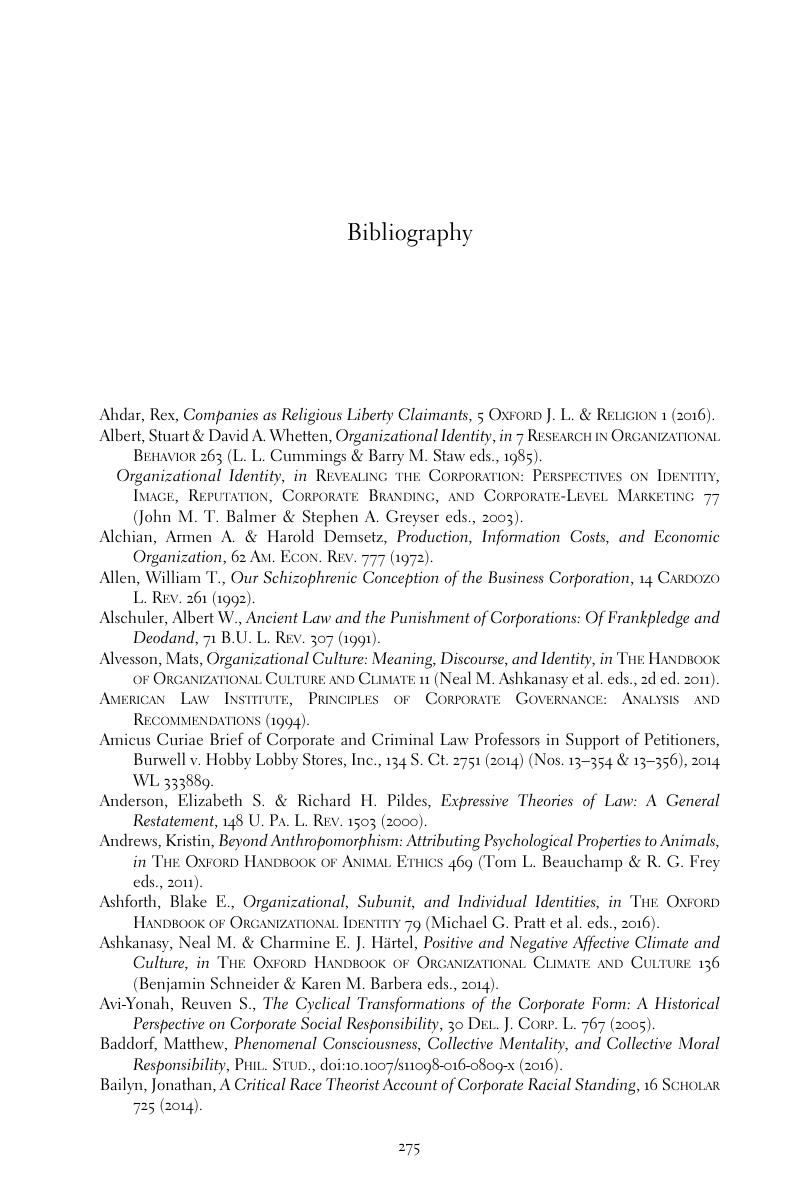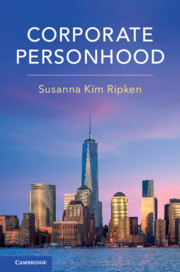Book contents
- Corporate Personhood
- Corporate Personhood
- Copyright page
- Dedication
- Contents
- Acknowledgments
- Table of Cases
- Introduction
- 1 Legal Theories of the Corporate Person
- 2 Philosophical Dimensions of the Corporate Person
- 3 Social Science Dimensions of the Corporate Person
- 4 Constitutional Dimensions of the Corporate Person: Corporate Free Speech
- 5 Constitutional Dimensions of the Corporate Person: Corporate Religion and Race
- 6 Abolishing Corporate Personhood
- Conclusion
- Bibliography
- Index
- References
Bibliography
Published online by Cambridge University Press: 21 June 2019
- Corporate Personhood
- Corporate Personhood
- Copyright page
- Dedication
- Contents
- Acknowledgments
- Table of Cases
- Introduction
- 1 Legal Theories of the Corporate Person
- 2 Philosophical Dimensions of the Corporate Person
- 3 Social Science Dimensions of the Corporate Person
- 4 Constitutional Dimensions of the Corporate Person: Corporate Free Speech
- 5 Constitutional Dimensions of the Corporate Person: Corporate Religion and Race
- 6 Abolishing Corporate Personhood
- Conclusion
- Bibliography
- Index
- References
Summary

- Type
- Chapter
- Information
- Corporate Personhood , pp. 275 - 295Publisher: Cambridge University PressPrint publication year: 2019



